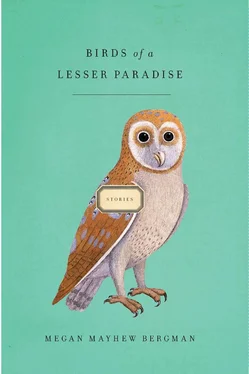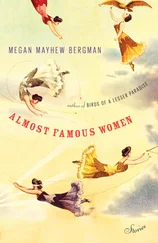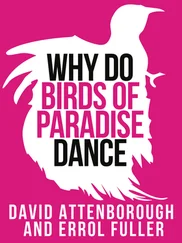I didn’t tell her to do the garlic, Pete says.
I’ll let her know you’re looking for her, I say. I screw on the top to my water bottle and scoot toward the door.
Your cash, Pete says, is in your kitchen cubby.
Thanks, I say.
Tell Willow I need her, Pete says. He looks like Tom Selleck as Magnum P.I., but without the sexy twinkle in his eyes. Pete is tall and dark, but he has no twinkle.
I nod and head outside. Regarding the cash — here’s the thing: I don’t exist. I’m no one. I’m off the record, unofficial. I have no bank account, no social security number; they have to pay me off the books.
Pete and Willow think I want to be off the record, probably figure I’m a reformed criminal or in witness protection, a low-profile damsel in distress. But I really don’t exist. Not legally. Mom and Dad never formally certified my birth, and growing up home-schooled in the Northeast Kingdom of Vermont, there was no one to challenge them. They wanted me to be “free of the system.”
Anonymity is a gift, Dad said. I have reasons to believe he meant it, and that even my mother didn’t know his given name.
When I find Willow, she’s standing in her mother’s overalls over the garlic bed. The denim is threadbare and patched. Willow likes clothes with history, fabric that looks loved.
This is an experiment, she says. Spring garlic. It will be petite.
Pete is looking for you, I say.
I refrigerated the cloves first, she explains. Garlic needs a cold treatment.
Willow, I say. Pete’s in the house and says he needs you.
She looks up at me. She’s chewing her bottom lip and I can see that I haven’t fully interrupted her concentration.
Six to eight inches apart, she says. What’s six times fifty? I should know.
Three hundred, I say. Did you hear what I said about Pete needing you?
What does he need? Willow asks.
He didn’t say.
Here’s the thing about Willow — she’s inherently annoying. She can’t help it. She’s sensitive, forgetful, and says exactly what’s on her mind. Unfortunately, the things on her mind frequently include her mother and celebrity pregnancies.
Willow takes her hair band out and her long, brown hair falls to her hipbones. She runs her fingers through it. Willow compulsively pulls out her hair. It’s everywhere in the house: the sink, sheets, food, kitchen floor. I secretly hate her for this, but I don’t hate her all the time. A lot of the time I feel sorry for her. She loves Pete, but he doesn’t love her back, and that’s obvious to everyone, even Willow. Pete is trying to make things work, despite the fact that being in the same room with Willow drives him crazy. She thinks she can change his heart.
They bought Smart Ass Farm when the fields were fallow and a pack of wild dogs was terrorizing local pastures. They took on me and a part-time field hand named Buzz. Buzz comes from Texas. He has an earring, knows a lot about pruning apple trees and planting potatoes, likes to race his dead father’s ’69 Dodge Coronet. He’s also hopelessly in love with Willow. His eyes fire up when she’s around, and there’s nothing he wouldn’t do for her: mow a path in the hay field for her evening walks, trim a hundred hooves, whitewash the greenhouse, pot the herbs when the leaves go gray in the November cold.
I’m gonna get to the cheese barn, I say.
Willow nods at me and kneels down next to the garlic. I hate thinking about how Pete will react, and how I’m going to have to assure him that I told her he was looking for her. Pete’s big on accountability. Every week he rides his four wheeler around the farm and looks at everyone’s work, scribbles notes. He’s never satisfied, but I haven’t met many people who are.
• • •
I don’t remember Shaktoolik, a half-town a hundred miles east of Nome, where my parents spent the short Alaskan summer so that my mother could give birth in a shed. But I’ve seen pictures of the place, before the seasons got confused, before the shoreline was covered in concrete riprap. In winter, the ocean becomes one with the ice and it all gets covered in snow and pushed into the streets. That’s the kind of place I was born. A nowhere place.
I was raised in Bloomfield, another nowhere town in the Northeast Kingdom in Vermont. The Kingdom. Sounds romantic, doesn’t it? It wasn’t. I’m not saying it wasn’t beautiful; it was. But it was other things, too.
In these nowhere places are my memories of my father, who left when I was twelve. Mom won’t say where he is, only that he might be dead. He must have left the house on foot, or perhaps on his bicycle, because I still drive his ’78 Ford pickup.
My parents met in a psychiatric hospital; Mom was an inpatient and already married. She had country club parents and the body of a dancer; her dashing young husband had signed her away on account of a journal entry she wrote about suicide, which, she always notes, he read without asking. My father, as she tells it, was hard to look away from. An outpatient, he had an easy smile and a persuasive way of speaking. He brought her books, cigarettes, and molasses cookies. On a cold night he waited outside her window, and they made a break for Alaska.
My parents, I learned at an early age, are not the kind of people the world cheers on.
We were drawn to places of freedom, Mom said when she talked about their early life, usually at the kitchen table after dinner. I loved them both, then. I loved to watch the inner mania take the shape of words. Mom had fashioned a messy bun on top of her head with two pencils and wore a crocheted poncho over jeans. Dad wore jeans and a white t-shirt, a cigarette behind one ear; it was the early eighties and a short-lived mustache consumed his upper lip.
First we took the bus to Nanaimo, where we dressed like pirates and raced bathtub boats, Mom said. We looked for Spirit Bears on Princess Royal Island.
Where we were almost eaten, Dad said, leaning forward in his chair. He never stopped moving. There was a bright light inside him that came out through his mouth and eyes.
We were driving to Alaska, Mom said, slowly. The van — we called her Gallinule — would only go fifty-five miles an hour, pedal to the floor.
The globe light that hung over our kitchen table was filled with bugs; you could look up and see the silhouettes of their still, black bodies. Mom and Dad were caught in the throes of the story, the way they were often caught in the throes of music and arguments.
We were, essentially, running away from your folks, Dad added, turning to Mom. Your father was on to us… your husband, too.
When we realized we were pregnant with you, Mom said, we went to the most remote place we could find and settled down for a while. We didn’t have a map and sort of ambled into Shaktoolik. I needed to rest.
The way she said it made me feel like I was a storm they could see on the horizon, something to prepare for. I concentrated on the details of the story in an attempt to put some structure to the family myth. Even as a child, I knew I was hearing a conversation I’d revisit in middle age; the moment smacked of nostalgia before it was even finished.
In Shaktoolik, Dad said, a Willow Ptarmigan had nested near the shed and was calling like a jaw harp while your mother was in labor. Your head began to breach—
I was hyperventilating, Mom interjected. I was ecstatic with pain.
Ecstatic, Dad said.
It was a beautiful thing, to hear them tell stories together, and they had many. They got louder as the stories progressed. It was always one story, two voices.
The ptarmigan was driving me mad, Dad said, his green eyes blazing. Calling and calling: BOW BOW BOW. Your mother was gripping the mattress and crying for me to make it stop.
Читать дальше












